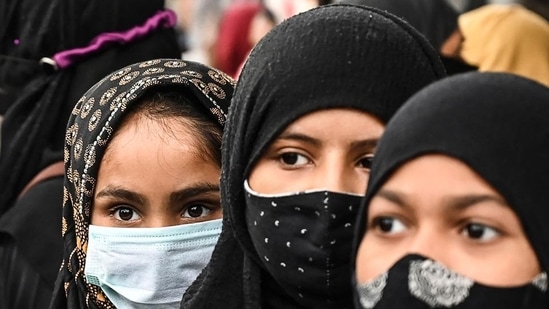How divorced Muslim women can claim maintenance under Section 125 of CrPC? Explained
Supreme Court on Wednesday ruled that a divorced Muslim woman can seek maintenance from her husband under Section 125 of the Code of Criminal Procedure (CrPC).
The Supreme Court on Wednesday ruled that a divorced Muslim woman can seek maintenance from her husband under Section 125 of the Code of Criminal Procedure (CrPC), which applies to all women “irrespective of religion.”

The court highlighted that Section 125 of the CrPC, which is now Bharatiya Nagarik Suraksha Sanhita, provides more advantageous provisions for a divorced Muslim woman compared to those in the 1986 Act.
The ruling came while the court was hearing a petition from a Muslim man challenging a Telangana High Court order directing him to pay ₹10,000 interim maintenance to his former wife. The petitioner argued that a divorced Muslim woman could not seek maintenance under Section 125 of the CrPC, asserting that the 1986 Act should take precedence.
What is Section 125 under CrPC, and what is its relevance now?
- Justices B V Nagarathna and Augustine George Masih in the judgment said that Section 125 CrPC, which addresses a wife's legal right to maintenance, also includes Muslim women. Maintenance is a legal right of married women, not charity, and applies to all married women regardless of religion. The Muslim Women (Protection of Rights on Divorce) Act, 1986, does not override the secular and religion-neutral provision of Section 125 of CrPC.
- The court said that husbands must provide financial support to their wives and suggested practical measures such as maintaining joint bank accounts and sharing ATM access to ensure economic stability for women within the household.
- Suppose a Muslim woman is divorced during the pendency of a Section 125 CrPC petition. In that case, she can seek recourse through the Muslim Women (Protection of Rights on Marriage) Act, 2019, and continue the Section 125 petition.
- Section 125 of the CrPC: “If any person having sufficient means neglects or refuses to maintain (a) his wife, unable to maintain herself, or (b) his legitimate or illegitimate minor child, whether married or not, unable to maintain itself, or (c) his legitimate or illegitimate child (not being a married daughter) who has attained majority, where such child is, because of any physical or mental abnormality or injury unable to maintain itself, or (d) his father or mother, unable to maintain himself or herself, a Magistrate of the first class may, upon proof of such neglect or refusal, order such person to make a monthly allowance for the maintenance… at such monthly rate as such Magistrate thinks fit…”
What is the current case about?
The court dismissed an appeal by a Muslim man challenging a maintenance order in favour of his ex-wife under Section 125 CrPC. He argued that the 1986 Act, enacted to counteract the Supreme Court's Shah Bano judgment, should take precedence.
However, the Supreme Court has now firmly established that Muslim women can seek maintenance under the “religion-neutral” Section 125 CrPC, consistent with the spirit of the Shah Bano case.
“We are hereby dismissing the criminal appeal with the major conclusion that Section 125 would be applicable to all women,” Justice Nagarathna stated while delivering the verdict.
How is it related to the 1985 Shah Bano case?
- The judgment delved into Muslim women's rights historical context, referencing the landmark Shah Bano case of 1985. In this case, the Supreme Court ruled that Muslim women were entitled to maintenance under Section 125 of the CrPC.
- In 1985, the Supreme Court allowed Shah Bano's plea for alimony from her husband after her divorce. However, the then-Congress government passed a law in the Parliament to overrule the verdict. The Rajiv Gandhi government enacted the 1986 Act, which restricted maintenance for a woman to the ‘Iddat’ period and alimony for the child up to two years from divorce.
- Despite the 1986 Act, the principles of the Shah Bano verdict endured. The bench noted the subsequent decision in Daniel Latifi Vs Union of India (2001), where another constitution bench extensively referenced the 1985 judgment and interpreted the 1986 Act to ensure Muslim women were not deprived of the protections under Section 125 of the CrPC.
- While upholding the constitutional validity of the 1986 Act, the Supreme Court on Wednesday ruled that a Muslim husband's responsibility for paying maintenance to his divorced wife could extend beyond the Iddat period. It also affirmed the need to make reasonable and fair provisions for the divorced wife's future.






